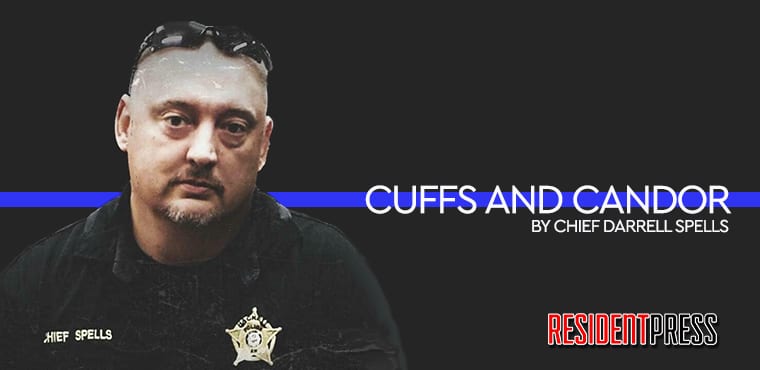Mental health has been an issue that has become dear to me, especially among Police and Fire personnel. Over the last several years, the state of Arkansas has made significant progress in dealing with mental health issues. In August of 2017, Governor Hutchinson announced the funding of four crisis stabilization units across the state. One is currently operational here in Sebastian County. The units are a great asset to law enforcement who often were faced with limited options when dealing with people suffering from mental illness. Officers were arresting people who may have been off their medication or suffering from an undiagnosed mental condition. These units provide a much safer and beneficial option than a jail cell. They give an opportunity for proper diagnosis and the chance to lead productive lives. What happens when mental illness affects those on the front line?
According to statistics from Callforbackup.org, 43% of police officers have personally known an officer or former officer that has completed suicide. In 2017, 93 firefighters and 129 police officers died in the line of duty. That same year 103 firefighters and 140 police officers committed suicide. Unfortunately, those statistics are more than likely higher than reported. Many agencies and families fail to report the actual cause of these deaths and many victims are those officers who have retired or recently left their respective agencies. Quite simply, the mental wear and tear from the conditions in these occupations are immeasurable. Take into consideration the sights and situations these men and women see on a daily basis. They carry all of that home, only to be confronted with the stressors of everyday life such as paying bills, family issues, and other situations. What can we do as fellow officers, spouses, or friends?
One of the first things we can do is to simply be a good listener for these men and women. It’s not an easy job. Speaking as a police officer, it’s often difficult for us to open up. We don’t want to discuss what we’ve seen or dealt with because we want to push it aside and move on. We don’t want to discuss the infant whom we tried to revive and failed or talk about the scenes from the crash we worked just before shift change. As officers, it’s even more difficult to help one another. We’re accustomed to handling a call, diffusing the situation, and moving on to the next call. Simply picking up the phone and checking on a fellow brother or sister is something officers, myself included, struggle with. I hate talking on the phone. I always have. It’s something I’m working on getting better at. It only takes a minute to pick up the phone and reach out. Officers are going through problems whether it be at home or on the job. We owe it to our fellow brothers and sisters to reach out.
Overcoming the stigma associated with mental health issues among first responders is the biggest obstacle. We have to erase the fear that these men and women feel about coming forward and asking for help. So many officers are afraid of the potential repercussions of coming forward such as being taken off the street and assigned to a desk job that they’re afraid to come forward. The analogy I often use is that of a physical ailment. If you sprain your ankle on the job, you go to the doctor and take the necessary steps to fix it. The same should apply to mental health.
One organization that is leading the way in helping officers cope with mental health is Call for Backup. A service of Humanizing the badge, according to their website…
“The #CallForBackup Suicide Awareness and Prevention Campaign is built upon the principle that peers are best suited to help one another. The stigma of seeking help for stress-related issues, and departments’ seeming lack of support, have caused many first responders to continue to suffer needlessly. Our unique training program helps first responders understand how the stresses of the job impact them mentally, emotionally, physically, behaviorally, and spiritually, and also helps them see how certain skills can make them more resistant to stress and more resilient when a major stressful event occurs. Most importantly, we teach them how important it is to look out for one another – to be the backup when someone needs it, and to call for backup for themselves when necessary”
In September of 2018, I was able to attend their train the trainer program. The course allowed me to interact with a classroom full of individuals who had all in some way been affected by suicide. Bringing this type of training home to our area is something I feel is necessary not just for our local first responders but those throughout our state and nationwide. The Call for backup mental health and suicide prevention course will be held at the Greenwood Police Department on February 8, 2019, and is open to all Police and First Responders. For more information on bringing this training to your agency please visit their website at https://callforbackup.org/ or contact me directly.






